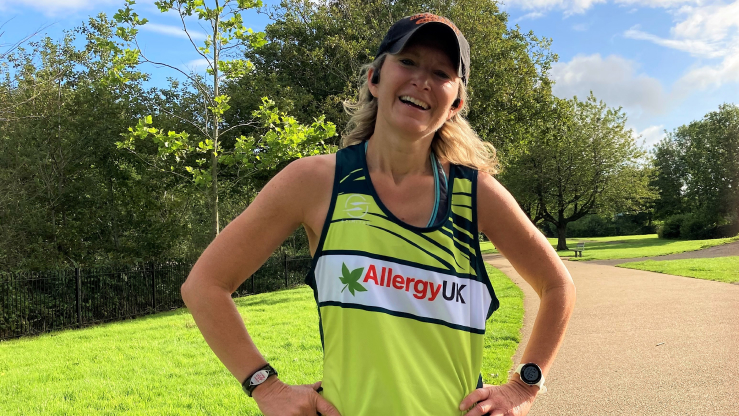
The opportunity for GPs with extended roles to address the allergy care provision crisis
Guidance and competencies outlined in new framework published by British Society of Clinical Allergy and Immunology (BSACI).
In the UK, the prevalence of common allergic diseases has trebled in the last 20 years to become one of the highest in the world. Recent estimates suggest that over one-third of the population will develop allergic problems at some point in their lives. There are approximately 18 million people living with an allergy in the UK, posing a direct cost to the NHS in excess of £1billion/year. For a condition with such a high incidence, there is a major shortage of specialists in the UK, and the delivery of services is variable across the country with some areas having long waiting lists.
A lack of knowledge and training in allergy in primary care has been identified, with patient support groups regularly reporting that patients often have difficulty gaining access to treatment, diagnosis, and referrals and their helplines being inundated with enquiries. Consequently, much of the current provision of alternative and complimentary services is being driven by this shortfall in state-funded healthcare services.
However, the reality is that with correct and full diagnoses, allergic reactions can be avoided. In turn, this could result in additional long-term health benefits for those patients with allergy, whilst also saving the NHS money through reduced treatment costs and hospital admissions. Early intervention and management – delivered within primary care – is therefore key to improving patient outcomes and delivering a positive benefit to the NHS overall.
To this end, it is encouraging that the NHS long-term plan supports the delivery of integrated care and the formation of primary care networks. This approach provides an opportunity for practices offering extended services by a GP or other members of staff with extended roles, if they so choose. Allergy management is a clinical area that could benefit hugely from these GP extended roles, and to this end, The British Society of Allergy and Clinical Immunology (BSACI) developed a framework for a GPwER in relation to allergy. This has been approved by the Royal College of General Practitioners.
The framework aims to ensure high quality care across the system, with most GPs with extended roles maintaining their core general practice. This is encouraged by the RCGP.
Definition of a GPwER
Many GPs value the diversity of their practice while being able to develop a further, specialist interest.
A GPwER is a GP who supplements their core generalist role by delivering an additional high-quality service to meet the needs of patients. Working principally in the community, they deliver a clinical service beyond the scope of their core professional role or may undertake advanced interventions not normally undertaken by their peers. They will have demonstrated appropriate competencies to deliver those services without direct supervision.
Therefore, a competency framework is designed to help practitioners understand and develop the extended knowledge and skills they will require to dispense services beyond the scope of their generalist roles. Such developments are expected to occur within a negotiated local framework.
GPwER in Allergy
A GPwER in allergy would be a general practitioner with a special interest in allergy care who can provide the clinical expertise and skills often delivered by specialist services closer to the patient’s home and potentially reduce the burden on secondary care.
The new framework that has been published by the BSACI and developed with the support of the British Society for Allergy & Clinical Immunology (BSACI) Primary Care Group, outlines the evidence and competencies that may be expected to be seen and tested during an accreditation process in GPwER with allergy.
It is worth highlighting that the training and personal development of GPwERs will need to be ongoing and will require support from specialist practitioners and/or access to relevant peer support. This is important for any commissioning groups to understand.Additionally, the framework does not preclude commissioners from developing specialist services using other practitioners outside of GPs, e.g. nurses, physician associates, pharmacists etc. It is possible for the competencies of these NHS-employed staff providing specialist care in community settings to also be assessed through the same knowledge and skills framework designed for GPs. Given the current lack of GPs within the NHS and cost benefit to the NHS of other healthcare professionals aside from GPs adopting this expertise, this is an important and useful benefit of the framework that has been developed.
Specialist practitioners are expected to operate within the local clinical governance framework and within their scope of professional practice. They must be able to demonstrate relevant expertise when moving into new areas and commissioners will need to take a more competence-based approach to reflect the current work on modernising healthcare careers.
GPwER – The Framework For An Extended Role in Allergy
The competencies defined in the framework have been selected as these underpin the provision of high-quality allergy services necessary so that the care model facilitates holistic delivery of care in the community. A diagnosis of allergic disease has the potential to be a considerable psychological and social burden for the patient. This requires timely and accessible holistic care.
It is not intended that GPwERS in Allergy Care have all the competences listed in this document. These can be divided into essential and desirable depending on the job role. For example, key core components such as taking an allergy history and the ability to perform and interpret allergy tests would be essential and adult and paediatric work may differ again in the further competencies required.
Examples for a GPwER service in Allergy Care are given below
Clinical Management
- Assess, review and advise on management of those with rhinitis, acute/chronic urticaria, food allergy, venom allergy, drug allergy, anaphylaxis
- Pharmacological management including use of epinephrine auto-injectors, nasal sprays and allergen immunotherapy
- Identifying patients at risk of life-threatening allergic events and addressing the needs of vulnerable and disadvantaged groups
- Advice on early weaning
Service Development and Leadership
- Provide leadership and support for developing allergy services locally
- Provide leadership for the development and implementation of local allergy guidelines
- Lead the development of shared care services for those with allergy
- Monitoring of quality standards of care (in liaison with the clinical governance lead), benchmarking with other GPwER providers and providing feedback to primary and intermediate care health professionals on quality performance
- To lead / advise primary care commissioners on the commissioning of allergy services in a locality PCN or STP
- Diagnostic and assessment services allergy testing
Clinical Services
- Link with local A/E staff & Consultants to develop pathway for those with anaphylaxis presenting at A/E
- Link with adult allergist
- Link with paediatric Allergist/dermatologist
- Link with Immunologist Link with BSACI established adult/paeds networks
Education
- Provide support, advice and training for local health professionals involved in the delivery of allergy care
- Provide education and support for local patient groups
- Act as a source of local expertise in prevention, detection and treatment in allergy care for patients, health professionals and health care managers
- Provide support for other Practitioners with an extended role in Allergy Care, e.g. mentoring
- Provide / support research and development into allergic disease in the locality
Liaison
- Liaison with the following groups to help improve the provision of allergy care in a locality:
- Between primary and secondary care health providers
- With health service managers and commissioner
- With local patient groups in providing local allergy services
- Primary Care networks
Simone Miles, Chief Executive Allergy UK says, ‘We welcome this GPwER framework to help improve quality primary care for people presenting with allergic disease. We are especially encouraged that the framework can be applied to other healthcare professionals within primary care such as nurses, as we have now been calling for over a year for nurses within primary care to be better utilised to deliver allergy care and support. Prompt recognition and correct management has the potential to reduce inappropriate referrals, improve quality of life for people living with allergy and reduce the postcode lottery of access to care.’
Allergy UK can support GPs wishing to extend their allergy knowledge through the Allergy UK masterclass series, which can be found online. Allergy UK also provides many resources for health care professionals within the website’s HCP section, alongside many factsheets available for free. More information on the GPwER Framework for Allergy can be obtained via the BSACI website www.BSACI.org
This article was written by Amena Warner, Head of Clinical Services Allergy UK with kind permission and contributions from Liz Angier lead author of the GPwER Allergy framework publication, and a GPwER Allergy.
Sign Up For More Information
It is important to Allergy UK that we can engage with all people that are affected by allergic disease
Join our mailing list





 Helpline
Helpline